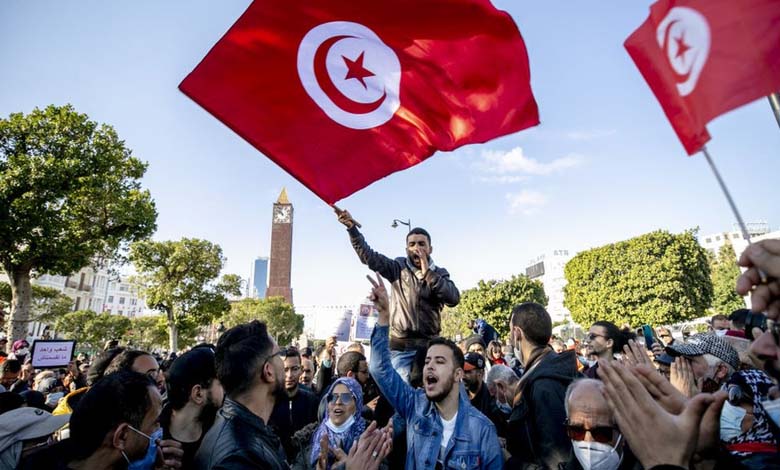The Tunisian Brotherhood… Exploiting crises to inflame the streets and attempt a political comeback

The Ennahdha movement, the political arm of the Muslim Brotherhood in Tunisia, is renewing its efforts to exploit the country’s economic and social turmoil in order to reclaim the political influence it lost after falling from power.
The movement operates through a transparent strategy: inflating crises and politicizing daily life issues, in an attempt to turn public anger into political leverage that could restore its prominence.
-
As the election date approaches… Muslim Brotherhood in Tunisia intensifies efforts to disrupt
-
Who is Noureddine Bhiri, the mastermind of the Muslim Brotherhood in Tunisia, accused in the travel case after being sentenced?
Observers confirm that Ennahdha employs an inciteful discourse that links economic hardship to political slogans designed to undermine confidence in the state’s ability to manage crises. This strategy is evident in the activities of key Brotherhood figures, including Rafik Abdessalem, former Minister of Foreign Affairs, who continues his work abroad to support networks connected to the organization, alongside domestic figures who seek to inflame the streets by exploiting any government decision or union action.
One telling example is that of former MP Maher Madhioub, who seized on a Ministry of Health decision to rationalize medicine consumption by publishing dramatic posts on his Facebook page about a “serious crisis” threatening thousands of patients. Yet experts emphasize that Tunisia manufactures 60% of its pharmaceutical needs locally, revealing that such rhetoric is intended primarily to spread panic and distort reality in service of Ennahdha’s political goals.
-
Its effects are no less than bombing Palestinian hospitals… Saied speaks about the corruption of the Brotherhood in Tunisia
-
Saied is determined to eliminate the Muslim Brotherhood in Tunisia… Details
The Brotherhood has also persisted in exploiting tensions between the government and the Tunisian General Labour Union. The union marches that took place last August were described by the Brotherhood as an “awakening against a fierce assault on rights,” in an attempt to transform legitimate social demands into a political platform of pressure on the authorities.
Tunisian political analyst Abdelrazek Al-Raïs said that while the country is indeed undergoing an economic crisis, medicines remain available. He noted that Brotherhood campaigns rely on media amplification and the instrumentalization of social hardships for political purposes.
-
The Ennahdha Movement collapses… Crises hit the Muslim Brotherhood in Tunisia
-
Painful end for the Brotherhood in Tunisia… demands to dissolve Ennahdha movement after the arrest of Ghannouchi
He added that these actors aim to deepen the rift between the union and the government, but they are increasingly facing rejection from the Tunisian people, who are no longer willing to see the movement return to the forefront of national politics.
This coincided with a firm speech by Tunisian President Kais Saied, who described the Brotherhood as “traitors” and stressed that the people would stand resilient against their maneuvers—an explicit indication that the state is determined to confront their actions.
-
The leaders of the Brotherhood in Tunisia before the judiciary.. The start of the investigations of “Deportation of Terrorist”
-
After the failure of the Brotherhood in Tunisia.. Is Kais Saied ending the legacy of Ennahdha and its corruption?
Ennahdha’s strategy thus appears as a desperate attempt at repositioning in the face of declining popular and political influence. Yet exploiting domestic crises is no longer as effective as it once was: Tunisian society has exposed the nature and goals of these maneuvers. Consequently, the Brotherhood’s gamble on crises has become a burned card that only deepens the group’s isolation instead of granting it a renewed entry into the national stage.
-
Ghannouchi before the courts… Terrorism Surrounds the Head of the Brotherhood in Tunisia
-
They Will Not Go Unpunished: The Accountability Process Tightens the Noose Around Tunisia’s Muslim Brotherhood












